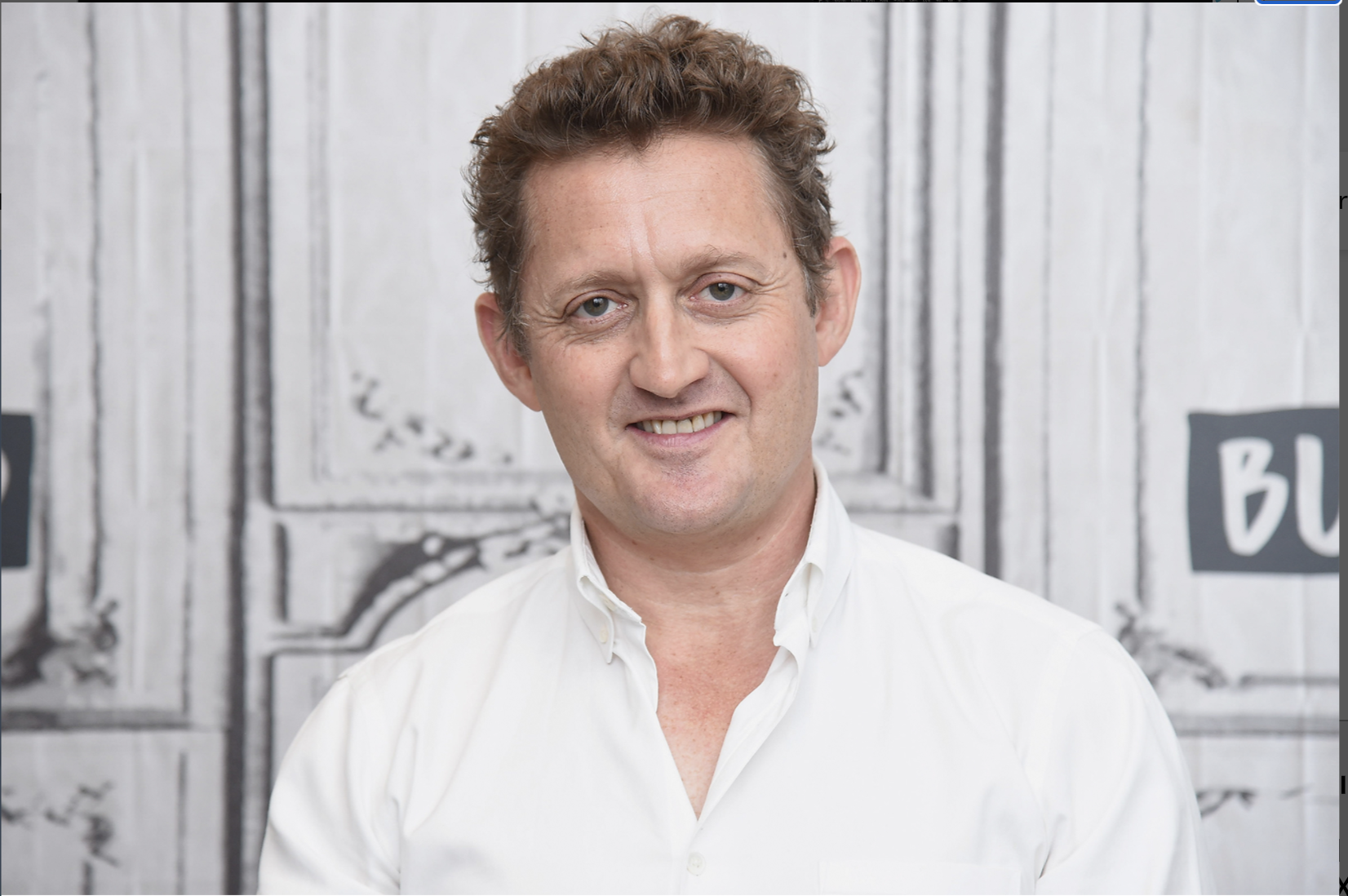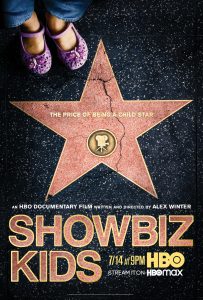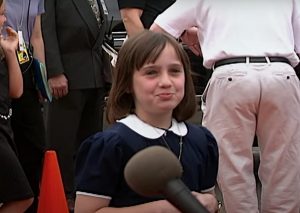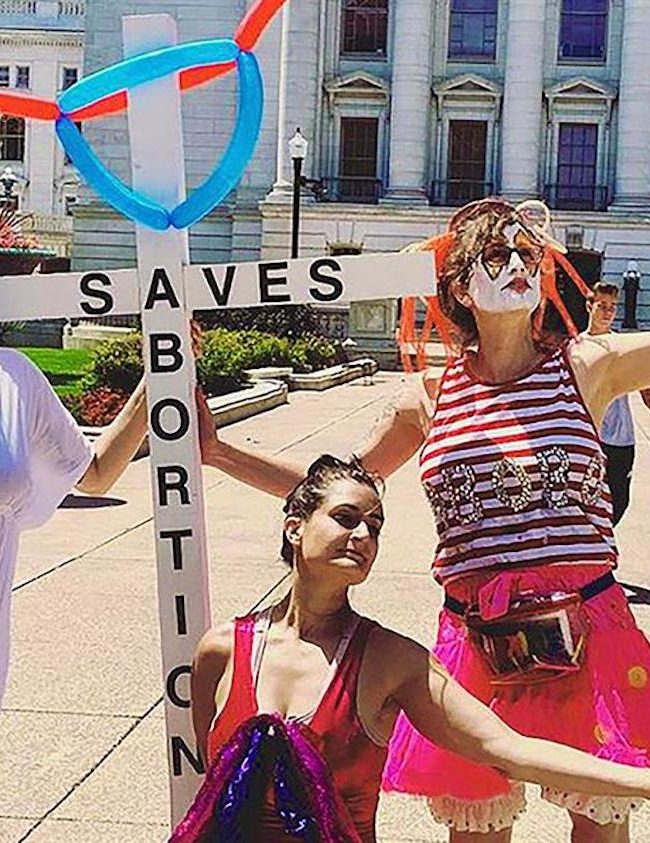A Conversation with Alex Winter (SHOWBIZ KIDS)

I recently spoke by phone with director Alex Winter about his newest documentary. Showbiz Kids (which I also reviewed), which premiered on HBO on July 14. In the film, Winter explores the toll of the spotlight on young actors, interviewing those who have gone through the trials of early celebrity and survived (if wounded). An actor, himself – he is Bill S. Preston in the Bill & Ted movies – Winter approaches the topic with sensitivity and nuance, respectful of his subjects and their often traumatic experiences. Here is a condensed digest of our conversation, edited for length and clarity.
Hammer to Nail: You have a very personal connection to the story, since you, yourself, started out as a young actor, though at first mostly on the stage, rather than the screen. How much did you see your own experience reflected in the stories told to you by your subjects here?
Alex Winter: A lot more than I expected. My experiences as a young actor were primarily from around the age of 10 to the age of 25/26, when I stopped acting professionally for a while. I’m turning 55 in a few days, so that makes a good 30-year stretch of life since then. And I really felt like I’d reconciled everything. I felt like I had a clear-cut understanding of everything, which I do, but I did not expect my story to come back at me, person after person, after person, after person. And I think a lot of the subjects felt that way. I think that it’s a much more isolated experience than you even think when you’re going through it. And it was not a negative, it was actually a positive, it was very sweet and it was very cathartic, but it was not expected.
HtN: So you now mostly direct, the upcoming Bill & Ted Face the Music notwithstanding, and you direct primarily, though not exclusively, documentaries. Could you discuss that evolution of how you went from one to the other?
AW: Yeah, though I mean it’s life, so there’s the long answer and the short answer, which is that it’s just life. The long answer is that I had many interests when I was a kid, even a little kid. I loved to sing and dance and be on stage. That was a huge interest of mine. I put a lot of effort into it and I liked writing little movies and putting on plays with my friends. And I actually, from a very young age, had my heart set on going to film school, not to drama school. And so I saved up my money from doing Broadway shows and I put myself through NYU film school. And then I came out of film school and I still liked acting and it was still my day job.
So, I ended up in those movies after college. But I was already off and running with directing and writing by the time I was in Bill & Ted’s Excellent Adventure. I had a directing partner and we were directing music videos and commercials, and we had our own show on MTV. We were actually doing pretty well. And after Bill & Ted’s Bogus Journey and Freaked, I’d just been in the public eye a little too long for my mental well-being and I needed to step away. So, it was an evolution to a degree, but it was also a conscious decision to get out of the public eye and just have some regular life while I worked on the writing and directing.
I’ve always been very interested in people – a big part of acting is studying people – and I’d always loved what documentaries can do, which is…well, their primary difference, from my perspective, with narratives is that they tend to be less didactic. And this isn’t to say docs are like this perfect thing, because many docs are didactic. But I tend to gravitate towards stories about paradoxical subject matters and internal conflict, self-contradictory people, and not make message movies that are falling hard on one side or the other, but just conveying grays and shades of gray. And docs are very, very good for that. And that’s why I really like working on them.
HtN: So, what motivated you to make this particular documentary now? Of course, I should point out that you have two documentaries currently completed, since I was originally going to interview you for Zappa at SXSW 2020, but that’s now been delayed.
AW: Yes, that is a bummer. So, the timing for this is…there were a few things that conspired to let us do it now. I tried to make this film many years ago and had not succeeded in getting it financed. And what happened here is that: a), I think I became a stronger doc filmmaker. I had a better sense of the concept that I wanted to do, and I had more stuff under my belt with which to go get financing. I went to Bill Simmons, we wanted to do a movie together and I talked to him about this and he loved the idea and we took it to HBO and got it made. And that was the trajectory of the finance.
And b) subject-wise, there arose the proliferation of Instagram celebrities and this notion of what is fame, what is childhood. And then also there was, through the #MeToo movement, the opening to have discourse around abuse and other vulnerabilities of children, whether they were in an industry or an institution or otherwise. And that was something that I knew would help me tell the story more candidly than I would have been able to previously.

HtN: So, how did you choose your onscreen interview subjects? I noticed that there are some actors who are shown in archival materials who are still very much alive in this world and aren’t interviewed for the film. So, did anyone say “no”?
AW: Well, people always say no. And I have to tell you, I’ve made quite a few docs at this point and I have yet to have the fact that someone tells me “no” hurt my film in any way. I suppose that would be the case if I wanted to make the Ruth Bader Ginsburg movie and she told me she didn’t want to make it. That would be the end of that! (laughs) But I haven’t had that experience. So I’m not going to be glib. There are people that you need that if they say “no,” there’s a problem.
But in my case, the story was not about an individual. That was exactly my point and why I’m not in the movie. I did not want the movie to be about an individual. We live in an era of the cult of personality and it overtakes everything and it would have completely inundated the story with the wrong kind of perspective. And what I wanted to do was tell a universal story about a collective experience. And so that wasn’t incumbent upon, “I have to have person X or person Y.” So, I wasn’t really particularly disappointed in the people that didn’t want to do it.
In fact, it’s a very delicate subject matter. And I was very, very blunt with people that I really wanted them to be open, to be intimate and honest about their experiences, and that I would have their back. I would neither exploit them nor hit them with goofy, gotcha questions. But at the same time, I certainly wanted them to be intimate and honest. And so the people who said “no” either didn’t want to talk about their child acting experiences, didn’t want to be in my movie, or weren’t comfortable discussing those things. And the people I ended up with did. And so that was really a boon. I really didn’t end up with subjects…and this does happen to you sometimes…I didn’t end up with subjects who went cold on me, who said “yes” and then just sat in front of the chair and just wouldn’t really open up. And of course, if they do that, you don’t put them in the film. But it’s always disappointing.
HtN: So many of the folks that you have in your movie are so smart and articulate about their experiences, from Cameron Boyce to Diana Serra Cary to Todd Bridges, Milla Jovovich, Jada Pinkett Smith, Henry Thomas, Wil Wheaton, Mara Wilson and Evan Rachel Wood. They were amazing. And it seemed to me like a cathartic therapy session. Were any of them recounting their stories and feelings for the first time?
AW: I mean, I can’t speak for people whom I haven’t had this direct conversation with, and that’s not all of them. But I’ve had conversations with several of them who said the experience was very cathartic for the same reason that it was for me, unexpectedly. Despite the work I’d done on this, despite knowing so many grown-up professional children, it’s a very…these are the memories and the challenges, and even the highs, a lot of that really just stays locked up in your own head. And so I think it was the first time for many of them that they were in a dialogue and realizing that their experiences were universal. And that was a good thing.
Mara Wilson told a story, in a later interview we did together, about the fact that she had said something to me during the course of the interview for this movie that she had regretted telling me, because it was really personal and she hadn’t said it before. And she loved the interview and she enjoyed the experience of working on the film, but when I sent her the film to watch, she was a little apprehensive, because she was like, “Oh, God, I’m going to say that thing.” And then she laughed because it was in there, but it was sandwiched between two other actors telling the exact same story about their own experience. And it completely neutralized her feelings of sensitivity around that memory, permanently. She realized that she’d been clinging to something unnecessarily for years.

Young Mara Wilson
And I have those experiences for sure, as well. In fact, for me, I had it with everybody, but I remember very concretely, I think it was probably because it was least expected, that I had it when I interviewed Diana Serra Cary and she spoke about her transition from childhood into adolescence and into adulthood and some of the highs and the lows and the challenges she faced. And I mean, I was looking at this 101-year-old woman, thinking she’s literally telling my story in intimate detail. And it was crazy. It was really lovely, but it was like, “Wow, okay.” So we really have had shared experiences.
HtN: That’s wonderful. I have to say that your film has many moving moments in it. I think the two most moving for me were, first, the one at the very end: I did not really know Cameron Boyce before this film, and so finding out that he’s now no longer with us really shook me; that was pretty devastating, as I imagine it was for you, having spent this time with him. And then that Entertainment Tonight clip of Mara Wilson as a little girl losing her tooth on camera and just being destroyed by it. That really shook me, as well. So, your film has many moving moments in it but those two stood out.
AW: I agree. That had the same impact on me. That little piece of archival just hit me squarely between the eyes. I don’t think it does that to everyone, but it really, really socked me in the gut, and not in a negative way, because it encapsulates the whole experience. But just watching her face, trying to manage the different people that she’s supposed to be and toggling between them and that’s literally the child-actor experience in a nutshell.
HtN: Yeah, that was pretty devastating. So, I’m curious, we’ve talked a lot about the stars, but how did you select your two aspiring stars, Demi Singleton and Marc Slater? I imagine you had many to choose from.
AW: That was labor intensive. I used to have a commercial production company and I did a lot of kids’ advertising. I did a lot of those Hasbro spots with Super Soakers and all that stuff. I’ve been directing kids my whole career, Nickelodeon and Disney half-hour shows and things like that. And so I knew a lot of agents and a lot of casting directors. I knew the network, as it were, and I just threw myself at them. And I had to get them to trust me because, rightly, their first reaction was, “Absolutely not.” And then I met an enormous amount of kids and that plea of trust began all over again with the parents.
And, as you see from the film, I really wasn’t looking to rip anyone apart. I really just wanted to be a fly on the wall of two types of experiences: a kid who was completely green, who was coming to town with lots of passion and no experience; and a kid who was well on their way in their career at a young age. So, I just sculpted it down to that. And some kids didn’t end up making the final cut because of it, and yada, yada. But I was really happy with Demi and Marc, and their parents.
HtN: I think they form a nice contrast and it’s nice to have them in this film about people who have otherwise gone through the process. Well, Alex, thank you so much for talking to me, and thanks for making the film. I wish you all good things when it premieres on HBO.
AW: Thank you so much. And yeah, I guess we should talk Zappa at some point. But I mean, we got to put it out first.
HtN: Can’t wait!
– Christopher Llewellyn Reed (@ChrisReedFilm)











